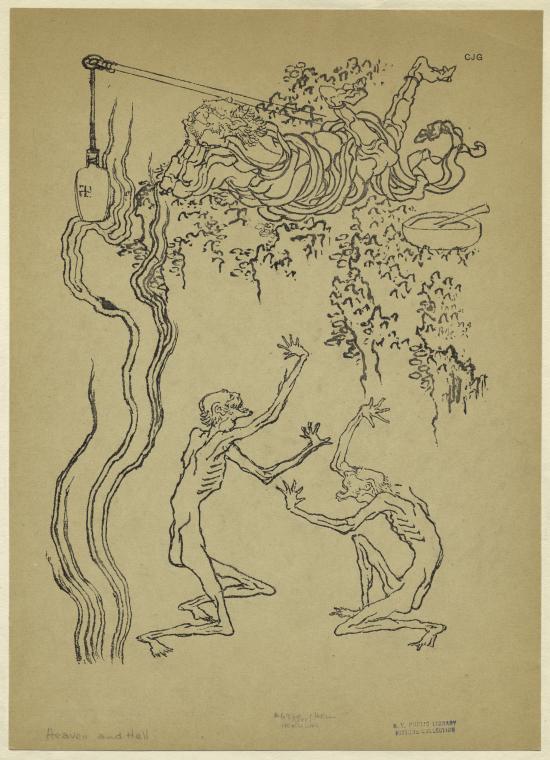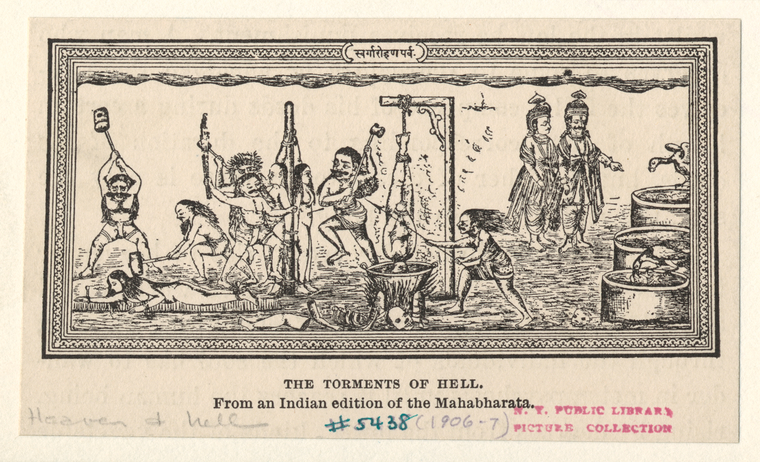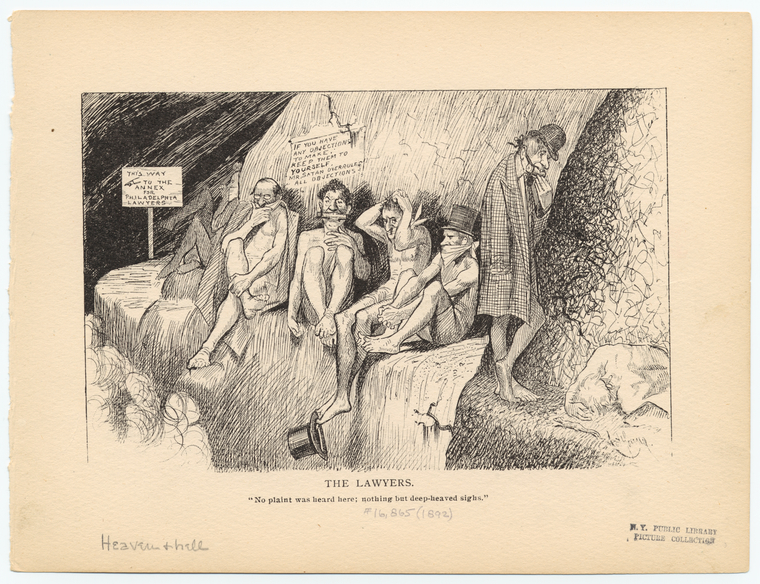Three Faiths, Biblio File
Where the Hell is Hell? A Look at the Underworld

Regardless of their spiritual differences and outlooks, they all believe that after life, there is a special place reserved for people that harm others or indulge in their own "sins" without remorse or repentance; thus their souls deserve this special invitation to hell or somewhere dark, agonizing and unpleasant in a state of foreverness or eternal damnation.
What's intriguing about hell is that it is beyond a theological or metaphysical debate: the history of the study of hell (known as eschatology) makes the topic even more fascinating. We know for sure that hell is a place that no one wants to go to after life but can we avoid going there anyway?
Many spiritual groups as mentioned above believe so. They all recommend common deeds, creeds or steps that one should take when they are still alive to avoid the abyss like be kind to your neighbors, do not murder, steal and lie, etc. These values are important to the groups and to those want to avoid hell at all cost. Some believe that hell is below "earth" or where we are positioned while others believe that "earth" is actually our "hell."
What's also interesting is the number of classics and writings alluding to the underworld when the writers have never visited there before:
- "Hell is empty and all the devils are here" from The Tempest by William Shakespeare: numerous references of hell including Hamlet, Macbeth and others.
- 17th century English Poet John Milton wrote Paradise Lost, a epic poem in blank verse that focused on the Biblical story of Adam, Eve and Satan.
- In Ancient Greek mythology, the Ancient Greeks believed in Hades, brother of Zeus who is the Father of Gods. Hades ruled the underworld with an iron fist.
- In the Christian Theology, the fallen angel Lucifer or known as the morning star, is referenced several times in the Bible. Lucifer, or known as Satan was cast out of heaven because of his evil nature.
- A Western Classic: The Divine Comedy by Dante Alighieri is a 14th century epic poem from Italy that explores life in hell through literary metaphors.
It is obvious that we can't really "test" out the theory of hell since nobody has returned from there to testify its existence or ambience but based on several narratives and surveys from people who have "experienced" hell through a mystical encounter or vision, we can at least visualize what hell could look or feel like. Many have claimed that evil spirits, demons, and ghosts lurk in hell and from time to time, they enter our world and haunt us when we are awake or asleep—known as incubus (male demon seducing women) or succubus (female demon seducing men).
In hell, Lucifer also known as Satan or the Devil rules over this fiery kingdom with his infamous trident and notorious tail and hooves.

Now don't get me wrong, I am not referring to that experience where you had to deal with your terrible boss, ex or in-law that caused great mental anguish as if you are actually experiencing or living in "hell."
What I'm referring to is the existential experience that some have testified about their metaphysical state in the underworld: "I was horrified as I heard the screams of an untold multitude of people crying out in torment. It was absolutely deafening. The terror-filled screams seemed to go right through me, penetrating my very being. I once heard about a television special where a news reporter spent the night in prison just to experience prison life firsthand. The prisoners were crying, moaning and yelling all night long. He stated that he couldn't sleep because of all the noise. This place where I now stood was far, far worse..." p. 8 From 23 Minutes in Hell by Bill Wiese.
 The Chronicles of Narnia: The Lion, the Witch and the Wardrobe on May 29We also have a book discussion program on themes of world religion and literature for the summer. You are welcome to sign up for them and join us to discuss the eschatological symbols in these literatures and what they mean to you.
The Chronicles of Narnia: The Lion, the Witch and the Wardrobe on May 29We also have a book discussion program on themes of world religion and literature for the summer. You are welcome to sign up for them and join us to discuss the eschatological symbols in these literatures and what they mean to you.
As Mark Twain puts it eloquently, "Go to Heaven for the Climate; Hell for the Company."
- Peruse our Digital Gallery for images of Heaven and Hell
- See here for resources on the study of Heaven and Hell
- We also have films and movies about the afterlife and afterworld or simply horror movies
- Read about the origins of New York's Hellish place names: Hell's Kitchen
- See here for resources on religions from around the world at NYPL
Read E-Books with SimplyE
 With your library card, it's easier than ever to choose from more than 300,000 e-books on SimplyE, The New York Public Library's free e-reader app. Gain access to digital resources for all ages, including e-books, audiobooks, databases, and more.
With your library card, it's easier than ever to choose from more than 300,000 e-books on SimplyE, The New York Public Library's free e-reader app. Gain access to digital resources for all ages, including e-books, audiobooks, databases, and more.
If you don’t have an NYPL library card, New York State residents can apply for a digital card online or through SimplyE (available on the App Store or Google Play).
Need more help? Read our guide to using SimplyE.

Comments
Thanks Ray! And since it is
Submitted by Lauren Lampasone on April 23, 2013 - 11:01am
an additional resource
Submitted by Billy Parrott on April 23, 2013 - 2:53pm
Thanks Lauren and Billy!
Submitted by Raymond Pun on April 23, 2013 - 6:45pm
It still doesn’t answer my question
Submitted by Anonymouse (not verified) on March 31, 2019 - 1:52pm